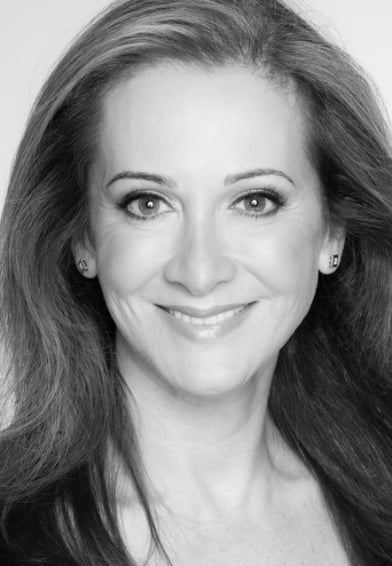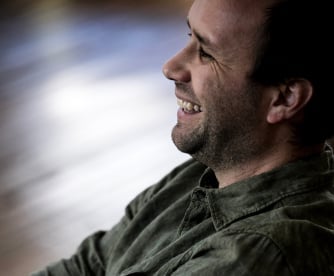I was asked recently what effect A Taste of Honey had had on my life. All I could remember were a handful of idiot teachers who said things like: “I bet you want to be a writer when you grow up, don’t you?” and ‘”Do you want to be famous, like your mum?” Then there were the others who insisted on asking me to wax lyrical about the symbolism of a bare light bulb in a squalid flat. Of course there is no symbolism; it’s exactly the right thing in the right place. Had it been an exquisite Tiffany lamp – well that would be a different matter. My mum rarely talked about Honey except to tell me she’d refused yet another request to mount a production of it in the Capital. Most of the articles I have read have concentrated on that iconic moment in her life and why it was never repeated. The fact that she continued to work, to write, her whole life, is apparently dwarfed by a lack of “fame” which is, as we know, the currency used to measure a person’s talent these days.
When she was made an honorary member of the Mark Twain society in 1977, she felt immensely proud; when the many radio plays she wrote in the latter years of her life were produced, she was immensely proud; when Dance With a Stranger was critically acclaimed, she was immensely proud; when she held any of her three grandchildren in her arms, she was immensely proud and, when Alicia and I set up Reel Rebels Radio, she was immensely proud.
My mum enjoyed much of the success Honey brought to her door: it gave her the freedom to explore the world, with me in tow usually; the money was nice and she was always generous with it and she met many of her heroes: Stirling Moss; Studs Terkel; Karen Blixen; Paul Newman; Katharine Hepburn – the list goes on and on. However, she did not want to be tied down to an idea of who she was ‘then’ and I think any of the people who continued to have a friendship with her after this brief moment in time, would agree. In 1960, Ken Russell made a short film, Shelagh Delaney’s Salford, and it’s plain to see that even as a young woman, she had far more on her mind than ‘how to be famous’.
My mum was able, better than anybody else I’ve ever met, to live in the present moment and although she was proud of Honey’s success and happy to leave behind a body of work that included it, she was no Miss Havisham, lost in the past and longing for its return. One of the main reasons she never allowed a big production of Honey to be done in London in her lifetime was because she couldn’t bear the thought of those relentless and predictable questions – and those relentless quotes from people who had been there but who had little to say about her in the here and now.
“When I’m dead you can take care of A Taste of Honey,” she said. “And send that Morrissey chap something from me.”
Done and done.
Contrary to popular belief, it was watching a production of Waiting for Godot whilst working as an usherette, that gave her the push she needed to lock herself away with a borrowed typewriter and write A Taste of Honey – Godot showed her that there were other voices that absolutely needed to be written and to be heard. That the theatre, like a good fairground, should have something for everyone. Time was of the essence, her father was dying and she wanted it finished before he was. Fortunately that particular deadline was met.
Until The National’s performance of A Taste of Honey in 2014, the only performance of it I had seen was Peter Zadek’s production in Hamburg. He had used the first and original script, which would have been fine if he hadn’t got carried away with the music which made it too long. Having agreed to the National’s request to stage it, I thought it best if I read it again; up until that point it was something I’d talked about with my mum, but not given a whole lot of thought. It was a good job because one of the cast members asked me: “What do you think A Taste of Honey is really about?”
Here is my honest reply to that question.
Above and beyond anything else, Honey is about the two women, Helen and Jo. This mother and daughter, growing up together, growing apart together, growing back together again, are at the heart of the play. And, I would suggest, are what makes it a timeless piece. If we consider the way in which women of all ages are discussed and portrayed in all manner of mediums, the vocabulary used, the judgements passed – yes, even today in our so-called post-feminist times, it’s easy to see that little has really changed. A few years ago, while I was lying in a hospital bed enjoying the effects of morphine and dihydrocodeine, I overheard a female patient complaining to her visitor about “…these young girls who get themselves pregnant so they can live off the state.” If I’d had the power of speech at that moment I would have asked her from which hills and valleys these young women were gathering this wayward sperm. And what was this princely sum on which they were all living the life of Riley?
A woman – Helen – leaving a marriage because there isn’t enough sex, raising a war baby alone, trying to have a good time whilst doing it and, of course, like all the best mothers, making mistakes along the way, is still a rarity. Or rather, for her to be written with wit and poetry and no moral assessment of her character, is a rarity. And that girl, Jo, with her back-chat, a “fuck you” attitude and a penchant for gorgeous black men, she too is written with humour, courage and dare I say it, love. These women are not tragedies, even if their lives have tragedy woven into them and at the end of the play, they get rid of the men and crack on with the job of life together – maybe not forever but certainly “for now”. It’s not that men are redundant in the lives of these women, they just aren’t essential. And that, my friends, is still a big deal. Helen could stay with Peter and be warm and clothed and fed and miserable. She tries it for a while, but her heart leads her back to her daughter.
Jo, similarly, could stick it out with Geoff, the nagging, cloying, house proud parent she’s never had – perhaps the parent she thought she’d always wanted. But there’s always a price to pay, and neither of these women are prepared to pay it. Instead they choose to defiantly and unrepentantly live their lives according to their own sensibilities, their own humour, and their own choice. Uncompromising, I think, is the word. These strong female characters are the real deal, in a real world – not gun-toting, ass kicking, fit birds that nonetheless end up in the arms of the leading man.
If this play were to be written now, my mum could replace the black sailor with a radical Islamist enjoying a moment of weakness and the effeminate art student might become a transgender wo/man. Whoever might shock the most would do the trick. Peter would stay the charming and abusive man he already is – they never go out of fashion – although perhaps these days he might be a drug dealer or a builder with a sideline in something shifty. But Helen and Jo wouldn’t have to change a hair on their heads or a word in their dialogue to get people tutting and muttering.
It’s the 21st century and we are still trying to explain why a little bit of sexual harassment is not okay.
It’s the 21st century and we are still turfing young single mothers out on the street.
It’s the 21st century and women are still being killed every week by their ‘partners’.
Oh yes, we still need Helen and Jo. So to return to the original question: What effect has Honey had on my life? Not much. But the calibre of the woman who wrote it – well – that’s bred deep in the bone, flourishes in the blood and is something I am regularly and frequently, grateful for.
Charlotte Delaney is writer-in-residence for Women in Humanities at the University of Oxford. She has worked with the Guinness Partnership, along with a number of other local organisations to establish a theatre program for the residents of Delaney Heights, an affordable housing complex in Salford. Through Charlotte’s tireless efforts, while Delaney Heights was under constructions, Charlotte was instrumental in transforming it into an immersive space for theatre, storytelling and live art.
Charlotte runs creative writing workshops and devotes her spare time to assisting a women’s aid group to help young women explore their creative potential. Charlotte’s own works have been performed both in the UK and the United States, including New York City. She used to write for the English radio serial, The Archers.
Shelagh Delaney, a true rebel was originally published in 2014, and revised in 2018. It is reprinted by kind permission of the author.




































